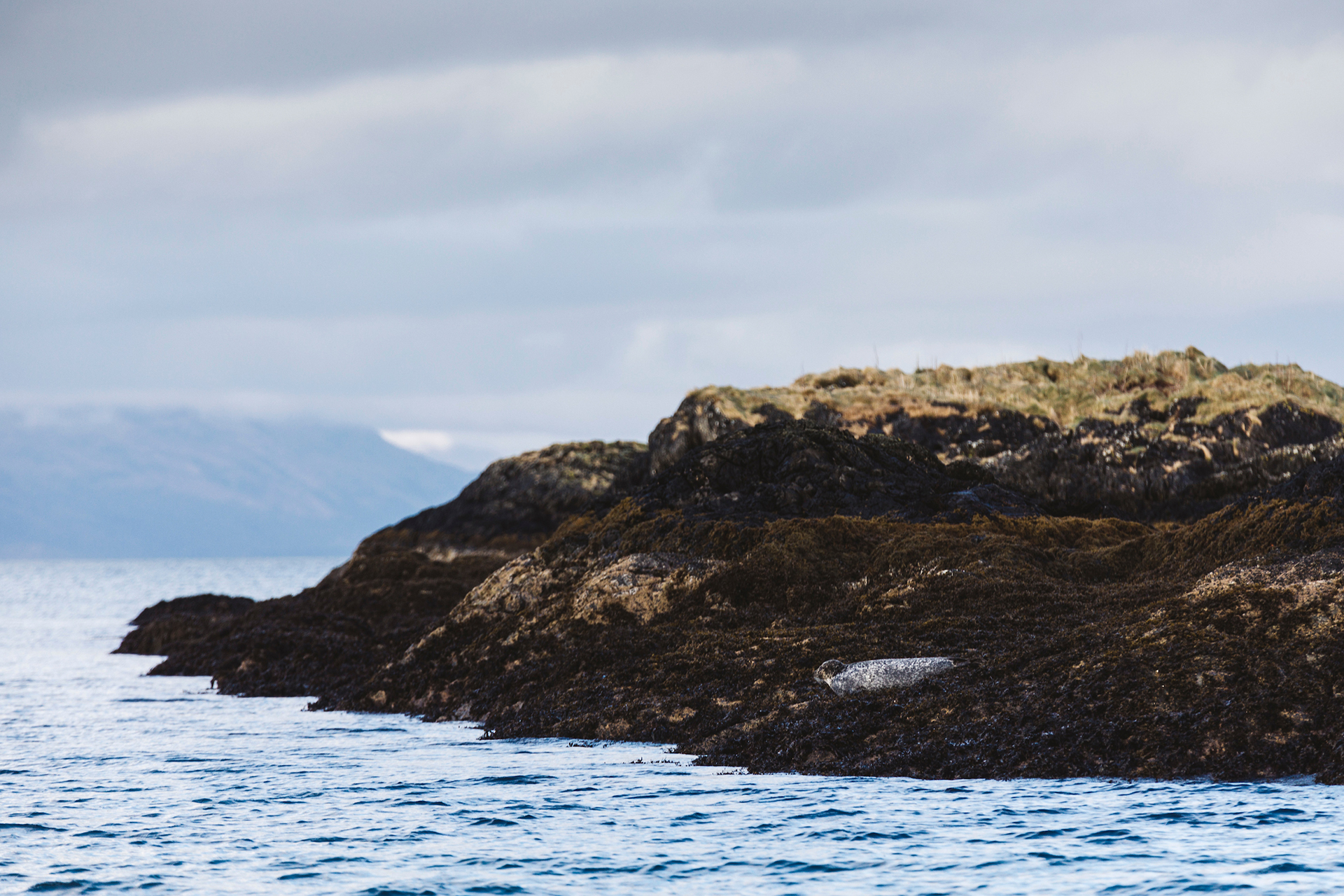The previously unpublished figures show that the company, which has 45 salmon farms around Scotland’s west coast and islands, culled 11 seals under licence at nine farms to protect its salmon stocks during the reporting period 01 February 2018 to 31 January 2019.
This is down 31% and 35% on 2017 (16 seal culls) and 2016 (17 seal culls) respectively.
At the company’s seven farms in Orkney, where the new protective Sapphire Seal Pro nets were first trialled in 2016 before being rolled-out, there have been no seal culls in almost three years.
Seal culling is the last resort option taken by farmers to protect the salmon in their care and is carried out under licence only when seals persist beyond all other preventative measures currently being invested in.
Comments Scottish Sea Farms’ Head of Fish Health, Ralph Bickerdike: “Our priority has been to install Seal Pro nets at those farms with a historic seal challenge. The speed with which we can do this however, is dictated in large part by nature as there are limited opportunities in the growing cycle where we can install the new nets without risking stress to our salmon. The ideal time is ahead of each new crop.”
To date, Seal Pro netting has been installed at 21 farms at a cost in excess of £4.2m, with plans for a further nine farms – specifically those facing a seal challenge – to be equipped in 2019 and 2020 at the start of each new crop cycle.
However, with counts indicating that the seal population in West Scotland has been increasing substantially over the last ten years, and each seal eating between 3-7kg of food per day depending on species, the pressure on available food sources has never been greater.
Says Ralph Bickerdike: “On occasion, we have installed Seal Pro netting at one farm only to see seals relocate to another farm where there had been no prior seal challenge. This, we believe, accounted for five of the 11 seals culled in the last reporting period and is further reason why we will continue to roll-out the new netting until each and every farm is protected.”
we will continue to roll-out the new netting until each and every farm is protected
With traditional nylon nets, a hungry seal will push its snout against the soft twine in the hope that salmon will swim close enough for it to grab. In contrast, Seal Pro netting has an altogether tougher, more rigid surface which helps deter seals and, in turn, improve fish welfare.
Securing the nets in place is an intricate system of individual weights placed at 5m intervals or a circular sinker tube at the net base, which increases tension, prevents the netting from flexing and reduces potential entry points for seals.
Now being widely adopted across the sector, protective netting such as Seal Pro nets along with the use of acoustic deterrent devices has contributed to an 81% drop in the number of seals culled by salmon farmers since 2011 – with the ambition being zero culls.
In addition to helping protect local marine life, Seal Pro netting also has several environmental benefits. Unlike traditional nylon nets which are treated with a copper-based anti-foulant to protect against marine growth in the same way that the hulls of boat or ships are, Seal Pro nets require no such treatment.
Engineered from high density polyethylene, they have a stronger frame that can withstand regular cleaning in-situ and a smoother surface that is harder for marine organisms to adhere to and is also easier to clean. This removes the need for copper, one of the heavy metals naturally found in trace amounts in marine and freshwater environments, helping preserve the balance of the surrounding habitat.
Says Jim Gallagher, Managing Director of Scottish Sea Farms: “It has been a long-standing goal of ours to use zero copper on our nets, taking us beyond SEPA compliance, and the continued roll-out of Seal Pro netting takes us a step closer to achieving that goal. We’ve also invested significantly in new technology that means each Seal Pro net can be cleaned in just over an hour, ensuring a pristine growing environment for our salmon.”
